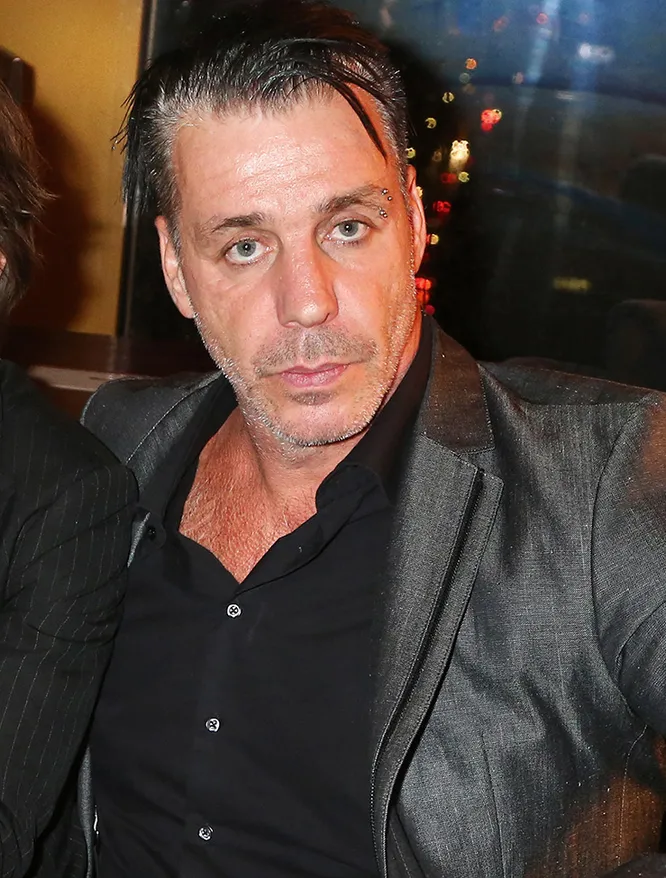In what’s shaping up as the most dramatic moment in the band’s storied history, Rammstein finds itself at a crossroads as frontman Till Lindemann is ensnared in a series of explosive allegations that threaten to engulf the entire German metal outfit’s reputation and future.
The controversy began in mid-2023 when multiple young women came forward claiming they were drugged and recruited to participate in after-show gatherings connected to Rammstein concerts. One of the earliest accounts came from a 24-year-old fan who alleged she was invited from a section dubbed “Row Zero” at a Vilnius concert and subsequently led to a backstage room. The story quickly went viral and triggered a Berlin public prosecution investigation into accusations of sexual offences and drug-related misconduct. (ITVX)
The allegations were serious, and the backlash immediate. The band’s label, Universal Music, halted all promotional activities for Rammstein’s recordings in Germany, citing the need to respect the alleged victims and pause marketing until the matter was more fully assessed. (News24) Fans and critics alike were polarized—some pointing to Lindemann’s iconic status in the industrial-metal scene, others demanding accountability and reform in the culture surrounding major rock acts.
According to the official statement from Universal:
“The accusations against Till Lindemann have shocked us… We have suspended marketing and promotional activities for the band’s recordings until further notice.” (News24)
While many anticipated that the investigation would lead to formal charges, prosecutors in August 2023 dropped the case, citing insufficient evidence to proceed. (euronews) Still, the damage was done. The cloud of public suspicion did not dissipate; instead it shifted into the arena of reputational risk, with some fans beginning organized petitions calling for concert cancellations and more stringent concert-safety measures. (euronews)
Rammstein eventually issued a second social-media statement acknowledging the seriousness of the claims and promising internal reviews, yet defending themselves from what they described as “unfounded” and “excessively exaggerated” allegations. (Louder) In it, they wrote:
“We take these allegations extremely seriously… We ask our fans: do not engage in public prejudice against those who have made allegations… We also have a right not to be prejudged.”
For the band, the implications extend far beyond legal outcomes. A career built on provocative imagery, pyrotechnics and stadium-sized performances now faces scrutiny over ethics, safety and culture. The fallout has already affected Rammstein’s ability to tour freely—activists vandalized their Berlin headquarters, and petitions demanded cancellation of three Berlin shows despite full venues raising more than 60,000 fans per night. (euronews)
Music industry insiders believe this scandal might mark a turning point—for Rammstein, for heavy-metal fandom, and for how big bands manage post-concert access and backstage protocols. “Large rock acts have operated with enormous privilege,” said a veteran promoter. “When issues of consent and power imbalance emerge, the entire ecosystem shifts.”
For Lindemann personally, the pressure is enormous. He has denied the allegations, describing them as without merit. (NME) Yet even with legal clearance, the reputational cost may linger. One recent development added another layer of complexity: in November 2024, a Russian arbitration court ordered Lindemann to pay around 638,800 euros for a cancelled concert in the Tver region, citing contractual failure. (The Moscow Times) While unrelated to the misconduct accusations, this judgment adds financial and logistical strain at a moment of reputational crisis.
As the band prepares for future projects — including teasing new music in late 2025 (uDiscover Music) — the question is whether Rammstein can rehabilitate its brand and regain momentum. The next few weeks will be pivotal. Fans, venues and sponsors are watching; some may pull back support until full transparency is delivered.
In fan circles, the mood is heavy. Once-loyal devotees debate whether art can be separated from the alleged conduct of its creator. Others hold out hope for reform and renewal. One Reddit user posted:
“The headline makes it sound like he was just being a rock star. The content, less so.” (Reddit)
If history holds, Rammstein will find a way to forge ahead, but the cost may redefine their legacy. For now, the band stands at its darkest hour—not due to stage fire or pyrotechnics, but due to questions of power, consent and accountability.
The grim truth: the revolutionary band that ignited crowds worldwide must now fight not just for chart-topping anthems—but for trust. Whether they emerge renewed or fractured remains to be seen—and fans across the globe are watching every move
